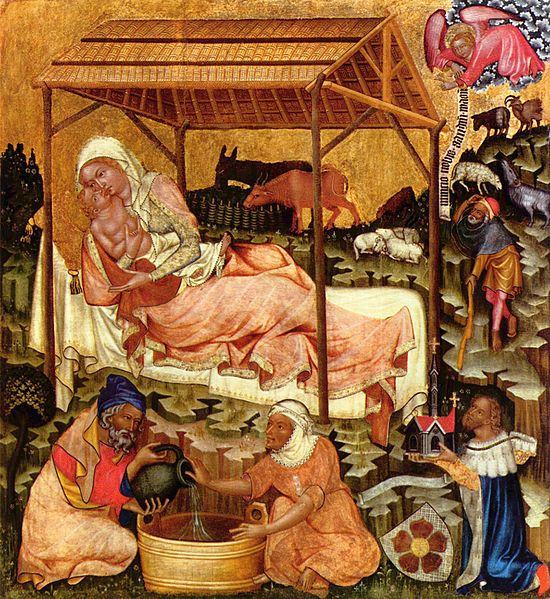
In “Could A Virgin Birth Ever Happen?”:
Virgin birth, known to scientists as parthenogenesis, appears to be rather common in the animal kingdom. Many insects and other invertebrates are capable of switching between sexual and clonal reproduction. Among the vertebrates, virgin births have been documented in at least 80 taxonomic groups, including fish, amphibians, and reptiles. But humans and our fellow mammals provide a notable exception. So far as anyone can say—and there are a few gaps in the data, notably the platypus—no mammalian species is capable of giving birth without a father.
A painting of the Madonna and Child accompanies the piece (not the one at left).
Items of this type usefully illustrate naturalism in science, as it filters into public consciousness.
Accounts in the New Testament insist that the birth of the Christ Child was explicitly not a natural event. See Matthew and Luke. So just about anything Popular Science has to say on the topic is irrelevant. But they feel the need to say something anyway.
Note: Popular Science hit our screens earlier this year when it dispensed with reader comments. Apparently, their reader are not literate enough for their publication.